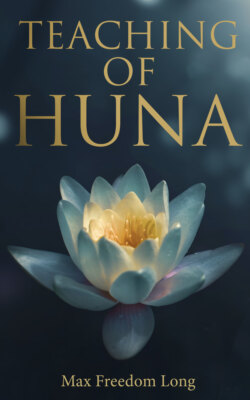Читать книгу Teaching of Huna - Max Freedom Long - Страница 7
На сайте Литреса книга снята с продажи.
Case 2 A Stage Magician Who Used Genuine Magic
ОглавлениеPreliminary Notes:
Startling as it may seem, there is real magic sometimes used on the stage instead of the supposed mechanical trickery which we universally believe to be in use.
In this case we have a man traveling with a carnival and saying nothing about the magic he uses, unless it be to those inclined and able to accept a statement of the true facts. This man and his wife performed in Honolulu and later were kind enough to try to explain their magic to me and try to tell how they had learned it. Just now we are interested only in what they did and not how they did it. The so-called "fire-magic" usually seen on the stage or in circus and carnival is a very poor imitation of what I shall next describe. It consists mainly of such feats as holding a lighted cigarette on the tongue and inserting it into the mouth, with the coal held safely away from contact with the flesh, or of taking gasoline into the mouth and lighting its vapors as they are blown out—this being possible because the vapors burn only when well away from the lips and after mixing with air.
The Case:
The fire magician of whom I speak gave his performance in a small tent. A railing separated him from his audience by a distance of from three to six feet. His apparatus consisted of a pine table on which lay the few things he used. The only part of his performance in which real magic was not used was the part in which his little dog leaped delightedly through a small hoop soaked with oil and set afire. Everything was done at close range and the watchers encouraged to test the heat of every article before it was brought into contact with flesh. Every move was made slowly and with no attempt to "juggle" or conceal.
The following things were done by the magician in each of the two performances which I witnessed: (1) He boiled water in a cup and drank it down rapidly while it was still bubbling and steaming. (2) Finger-thick pieces of soft pine wood were held in the blaze of a gas burner until they were turned at one end to glowing charcoal. He took up six of these, bit off the live ends, and chewed them. (3) He heated thick iron bars to a bright red heat in the middle and then passed his tongue along the red surface repeatedly—resulting in sizzling steam rising from his bare tongue. (4) He lighted an ordinary welding torch; drew the flame down to a cutting cone of blue-green; used the flame to cut through iron bars repeatedly; gave the bars and the torch to members of the audience for examination. Without adjusting the torch in any way, and seeming to have no protection or method of temporarily extinguishing the flame, he introduced it repeatedly into his mouth. His mouth remained open to its fullest extent and the flame could be seen playing from the end of the burner, even when it had been thrust in as far as his lips. (5) He heated an iron bar to redness and handled it with bare hands in a way which would have burned another severely indeed. He took a heavier flat bar and heated it to redness in the center. He took the heated part between his teeth and, holding the ends of the bar in his hands, bent it up and down twice from the center. Comment:
The bending of the bar held between the performer's teeth caused me to examine his teeth carefully. They were strong teeth and not false. This point interested me greatly, as the red-hot iron remained for a period of nearly ten seconds in close contact with the upper and lower front teeth. Although this was one of his stock "tricks" done several times in an evening, the enamel was not cracked on the teeth nor did they seem injured. Before the second performance a dentist joined me. He stated that contact with such heat would kill nerves and destroy teeth under ordinary circumstances, as well as cause intolerable pain while the nerves were still alive. Ulceration would result and the teeth have to be pulled out. We scraped the biting edges of the teeth with a penknife just before the second performance—this to make sure no invisible insulating substance, no matter how thin and transparent, could be present.
The question of some solution to insulate from heat seemed most improbable as the mouth was itself wet. Also the edges of the teeth would hardly take such a coating—one too thin to be detected or scraped off. 3
